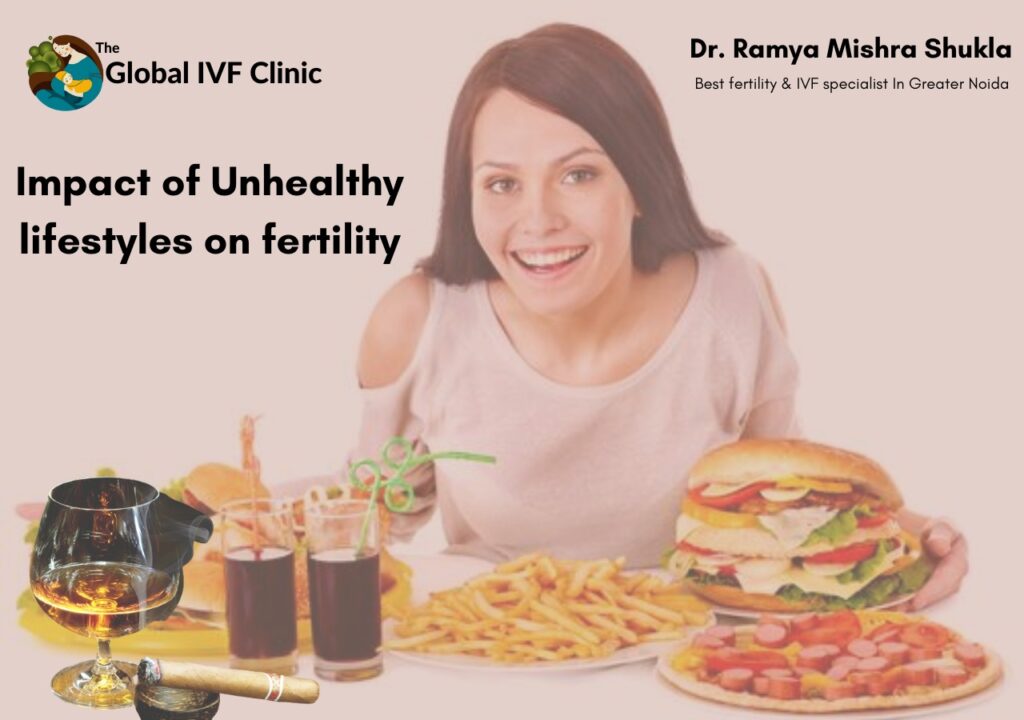The young population has seen significant lifestyle changes in recent years. There is a continuous growth in unhealthy lifestyle choices, affecting all aspects of health, from smoking to excessive use of contraception. The rise in lifestyle risk factors has been identified as one of the key reasons for infertility among men and women.
According to the Best Fertility & IVF Specialist In Greater Noida, Increased cigarette use, excessive alcohol consumption, growing contraceptive usage regularly, rising obesity, stress, late marriages, and delayed family planning these are some factors that lead to infertility. Aside from this, a variety of medical disorders such as Polycystic Ovarian Syndrome (PCOS), endometriosis, premature ovarian failure, and others can lead to infertility at an early age.
While clinical therapies can assist with the medical aspects of infertility, there is a critical need to raise knowledge about the lifestyle risk factors for infertility to avoid and battle challenges in seeking early fertility care.
Let’s look at how lifestyle choices affect fertility:
Tobacco use: Smoking cigarettes or chewing tobacco can interfere with the formation of sperm cells. In males, tobacco smoking is linked to a reduced sperm count and hormonal imbalance. Smoking causes early menopause in women, which increases female infertility.
Alcohol usage: While the negative effects of excessive drinking are numerous, men’s fertility is harmed as a result of the reduced seminal quality, low testosterone levels, decreased semen volume and sperm count, and other factors. Women’s hormonal equilibrium is disrupted by chronic alcohol usage, resulting in irregular ovulation or early menopause.
Contraceptive usage: Excessive contraceptive use has an impact on a woman’s reproductive potential. Contraceptives disrupt a woman’s menstrual cycle by inducing hormonal imbalance in the body.
Abnormal weight: A body fat level of 10-15% over normal can entirely disrupt a reproductive cycle’s hormone balance. Furthermore, a body fat level of 10-15% below normal might entirely stop the reproductive axis from operating.
Extreme mental stress, high temperatures, toxins, radiation, or strong electromagnetic or microwave emissions, according to scientific research, may impair fertility in both men and women.
Social risks: In career-oriented women, postponing marriage and having children is linked to a higher risk of infertility, chromosomal abnormalities, general health problems that interfere with fertility, and miscarriages.
Toxins in the environment
In the male body, some substances can mimic the actions of female hormones. This might result in a decrease in sperm production. Insecticides, herbicides, pesticides, and other chemicals can harm sperm.
Toxin exposure can have an impact on hormones and the health of a woman’s eggs. Dental assistants, industrial workers, agricultural workers, and hair stylists are among the women who are exposed to high quantities of potentially dangerous chemicals.
Phthalates are compounds that are prevalent in plastics and act as endocrine disruptors, which can harm both the mother and the kid. Instead of plastic water bottles, we recommend using washable glass or metal bottles. Endocrine disruptors can also be present in most company receipts.
Medications
Certain prescription medicines, notable testosterone, can have a deleterious influence on sperm production. Other medicines that affect sperm activity include calcium channel blockers, which are used to treat hypertension. Flomax might affect the efficacy of ejaculation. Consult your doctor to discover if any of your prescription drugs put you in danger.
High-temperature environment
Sperm maturation occurs in the testicles, which are kept at a somewhat lower temperature than the rest of the body. Participating in activities that raise the scrotal temperature on a semi-regular basis might reduce sperm production.
From fertility & IVF specialist, Dr. Ramya Mishra Shukla you can get a comprehensive approach and advice on lifestyle changes that may help you conceive. Get in contact with the professionals at First Step IVF now for more information!

